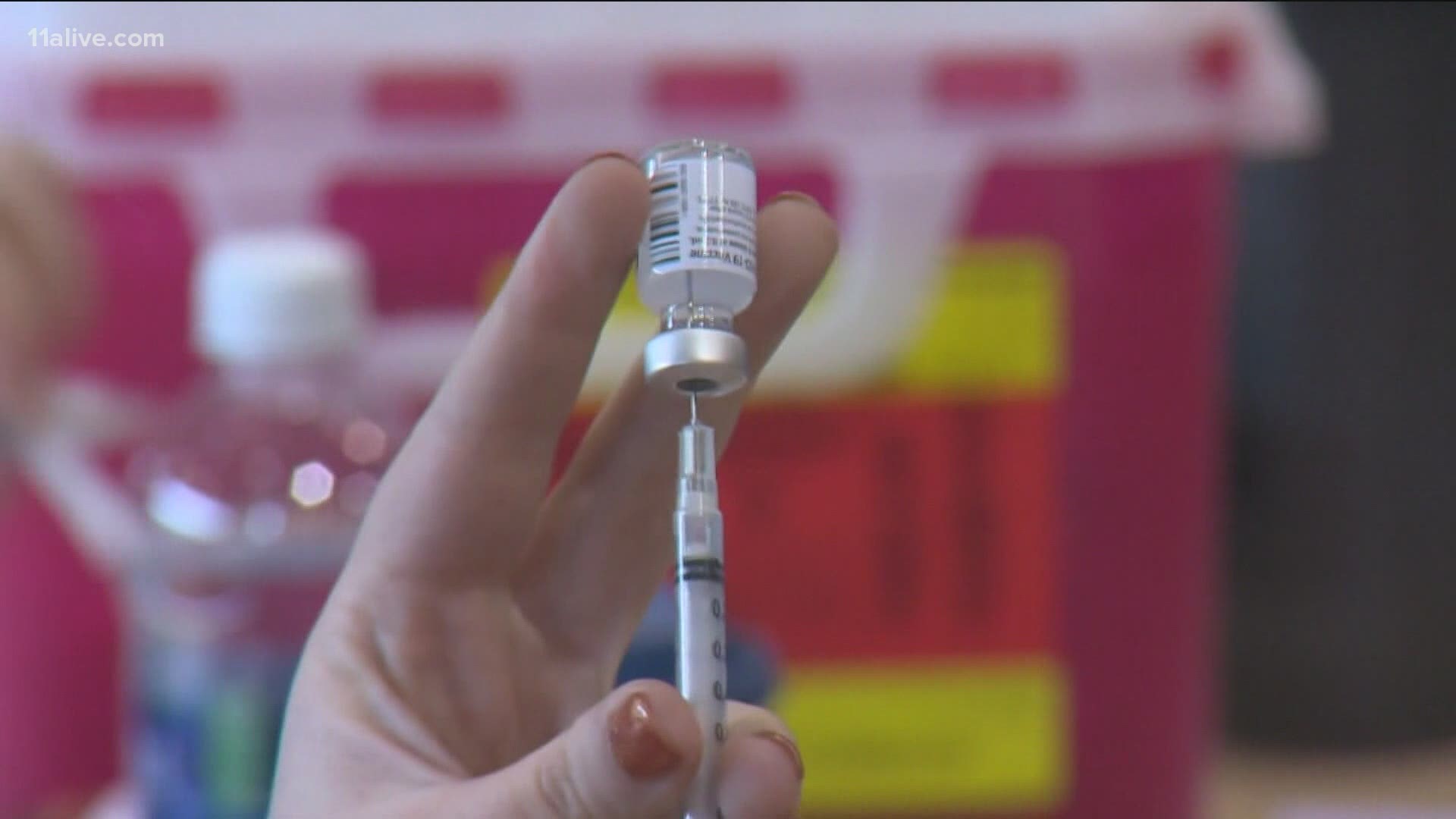ATLANTA — Here's why the state may not reach herd immunity
As more people get the vaccine, experts said Georgia may not reach herd immunity in the state after all. For more than a year, experts claimed herd immunity was the goal to get us back to life before the pandemic. For many, the finish line to a "back to normal" life seems so far away, but many health experts said it's the individuals that hold all of the power.
"The goalposts are ultimately set by us," Jesse Couck Infectious Diseases doctor at Piedmont Clinic said.
Couck specializes in infectious diseases and he said community spread is still too high.
"We do have a lot of people, for example, over the age of 65 vaccinated. And that has decreased mortality. But that means that the people in hospitals now are younger," Couck explained.
What is herd immunity?
Johns Hopkins Bloomberg School of Public Health explains the concept as follows:
"When most of a population is immune to an infectious disease, this provides indirect protection—or population immunity (also called herd immunity or herd protection)—to those who are not immune to the disease.
For example, if 80% of a population is immune to a virus, four out of every five people who encounter someone with the disease won’t get sick (and won’t spread the disease any further). In this way, the spread of infectious diseases is kept under control."
Herd immunity is not a clear line. Health experts estimate the target threshold would be about 60% to 70% of the United States population early on. Those calculations were based on the contagiousness of the "original" version of the virus, Couck said. However, the variants have changed the landscape.
What has changed?
The virus has become even more transmissible.
"Most of the SARS COVID-2 in Georgia right now is the B.1.1.7 Variant, the more transmissible variant that was identified in the U.K., so, the virus has become more transmissible," Couck explained.
Despite Georgia's mass vaccination sites closing last week, Governor Brian Kemp called on community leaders to continue to encourage folks to get vaccinated.
"We need leaders in the local community in our religious organizations, people in sports, community leaders," Kemp said.
Experts believe we could soon reach the vaccine tipping point -- meaning that everyone who wants the vaccine already has it.
"If you're at home and you're waiting for things to get back to normal, but you, yourself, are not vaccinated-- just realize that you're waiting for yourself."
The mass vaccination sites in the state are set to close next Friday, May 21.

